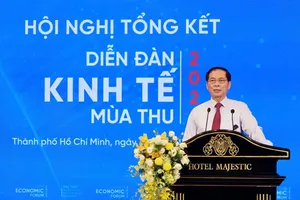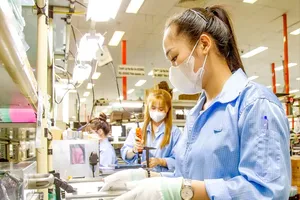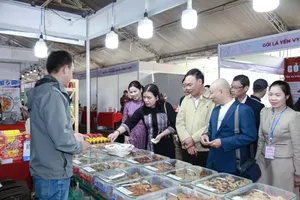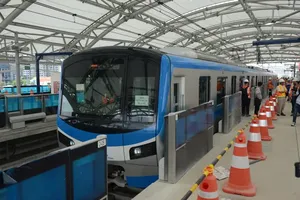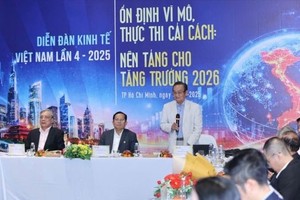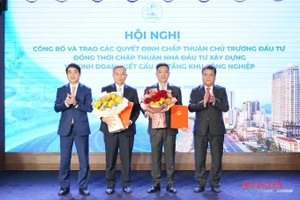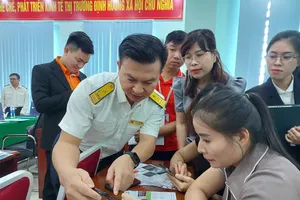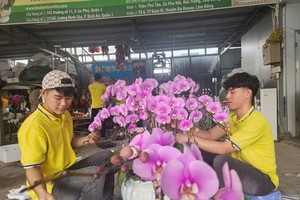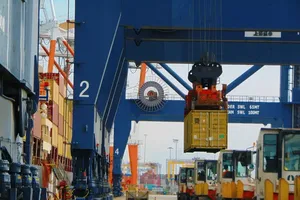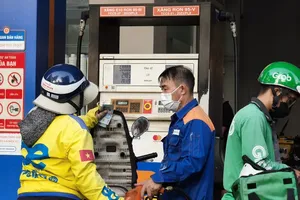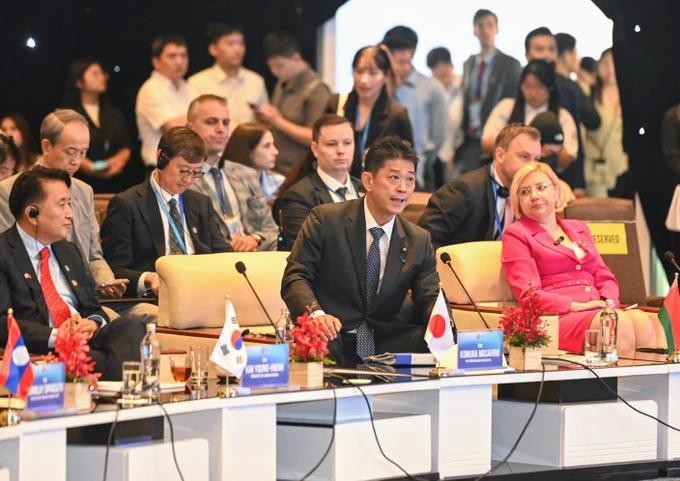
At the event, many delegates from many countries showed their eagerness to assist Ho Chi Minh City in its swift industrial transformation and pursuit of sustainable development.
Deputy Minister Komura Masahiro of Foreign Affairs of Japan highlighted the significant contributions made by young Vietnamese students and interns to Japan's socio-economic development. He emphasized the ongoing cooperation with Ho Chi Minh City to foster the development of human resources. This collaboration aims to equip young Vietnamese individuals with new knowledge and skills during their studies and work experiences in Japan, enabling them to contribute to the country's growth and serve as valuable assets, particularly in the realms of digital and green transformation.
Furthermore, Mr. Komura Masahiro expressed Japan's willingness to offer any assistance that Vietnam may require.
Vietnam is viewed as a promising market for Japanese businesses, particularly in the realms of green and digital transformation. These sectors have garnered significant interest from numerous Japanese firms, many of which are already active in Vietnam. To date, approximately 90 projects aimed at reducing carbon emissions have been initiated in collaboration with Vietnam. The Japanese Government remains committed to fostering further cooperation in these areas.
The Japanese Deputy Minister of Foreign Affairs emphasized that Ho Chi Minh City needs to promote efforts to improve the investment environment for Japanese companies. He disclosed that there are currently more than 2,000 Japanese companies operating in Ho Chi Minh City making the southern metropolis become the largest place of operation for Japanese companies. In recent years, Ho Chi Minh City's economic development has attracted more Japanese investors because of its attractive consumer market. Major Japanese retailers such as Aeon and Uniqlo are increasing their investment in Vietnam.
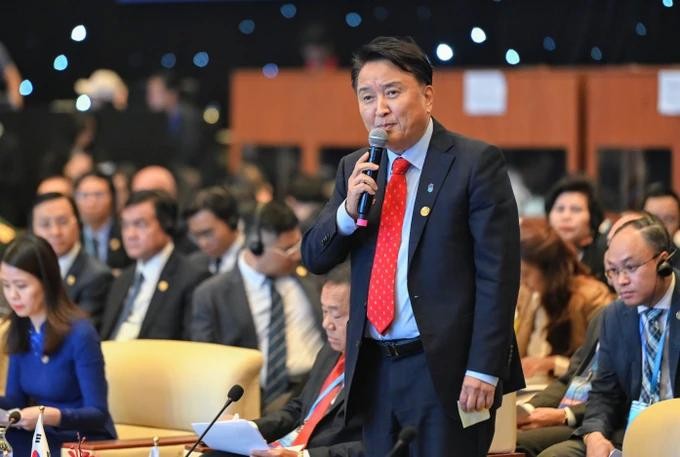
Chairman Phan Van Mai of the Ho Chi Minh City People's Committee expressed strong commitment to enhancing the investment and business climate to position Ho Chi Minh City as an appealing hub for global investors, including those from Japan.
In the ongoing dialogue, Chairman Phan Van Mai expected that conference participants should provide insights into the industrial transformation processes occurring in their regions. Governor Kim Young-hwan of Chungcheongbuk Province in South Korea noted that despite being a small province with no coastline and a limited population, Chungcheongbuk stands out as a leader in industrial transformation and development within Korea.
Mr. Kim highlighted several initiatives in Chungcheongbuk and one of initiatives are establishing a semiconductor industrial hub. Moreover, to address labor shortages in rural areas, Chungcheongbuk administrators have been facilitating the employment by taking unemployed laborers from urban regions to work on farms. The government will cover 40 percent of their salaries, while the remaining 60 percent will be the responsibility of the farms.
In addition, the local healthcare initiative has proven to be quite effective, utilizing a model where medical examinations and treatments are provided upfront, with payments collected afterward. Patients are admitted for necessary procedures and gradually repay the costs incurred by the government. Over 1,000 local residents have benefited from timely surgeries, and the reimbursement rate remains notably high.
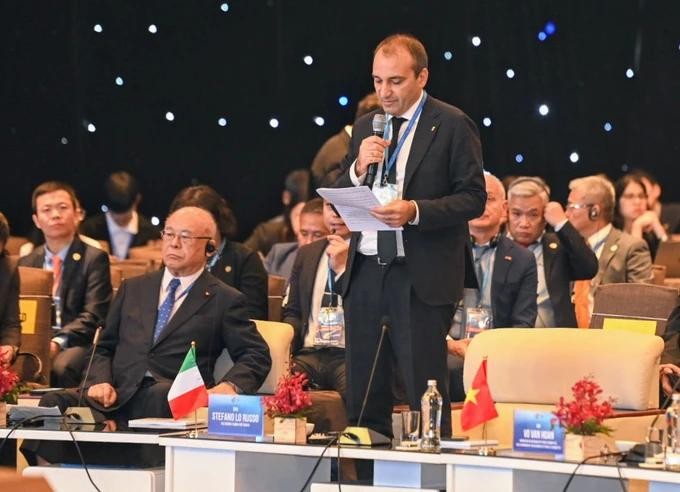
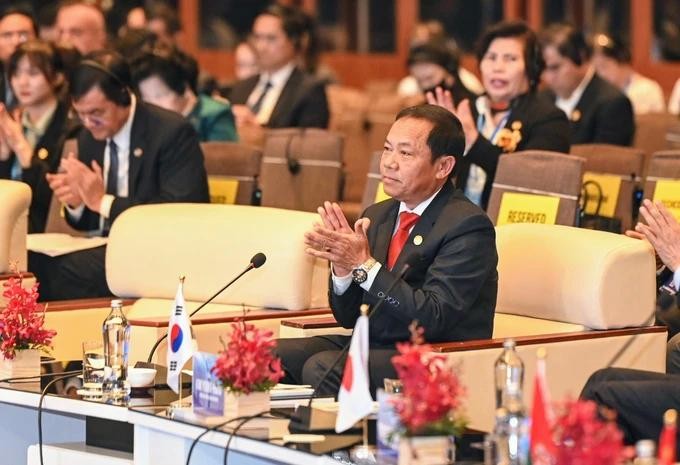
Meanwhile, Mayor Stefano Lo Russo of Torino (Italy) acknowledged the growing significance of fostering relationships between cities worldwide. Urban areas are becoming focal points for new collaborative models. It is within cities that innovative policies are enacted, and partnerships between public and private sectors yield sustainable outcomes. Tangible solutions are being realized, moving beyond mere initiatives.
The industrial and ecological transition in Torino is possible thanks to the continuous dialogue between the government, businesses and universities, said the Mayor of Torino, adding that Torino’s two strategic sectors are automotive and aerospace.
Similarly, he said that being a large and vibrant city, Ho Chi Minh City is also facing many challenges for sustainable development; hence, cooperation and exchange between the two cities can create development for the two cities and the whole territory, said the Mayor of Torino.
Meanwhile, First Vice President Nadzeya Lazarevich of the Minsk City Executive Committee (Belarus), shared her country's experience in industrial transformation, which is focusing on developing high-tech industrial parks (TechnoPark). This is a combination of business and educational organizations, which are given many incentives by the government. The country currently has 16 such high-tech parks, of which the capital - Minsk has 5, creating key products with high competitiveness.
Vice President of the Lao Front for National Development Khamlay Sipaseuth emphasized that the focal point of the transition period is socialist industrialization. Laos is exploring innovative approaches and strategies to engage all segments of the population in the transition process. The Lao Front for National Construction plays a crucial role in facilitating industrial transformation and guiding the nation’s overall socio-economic development.


